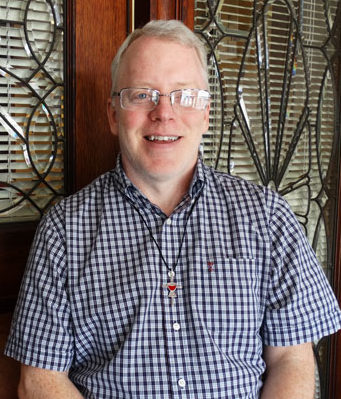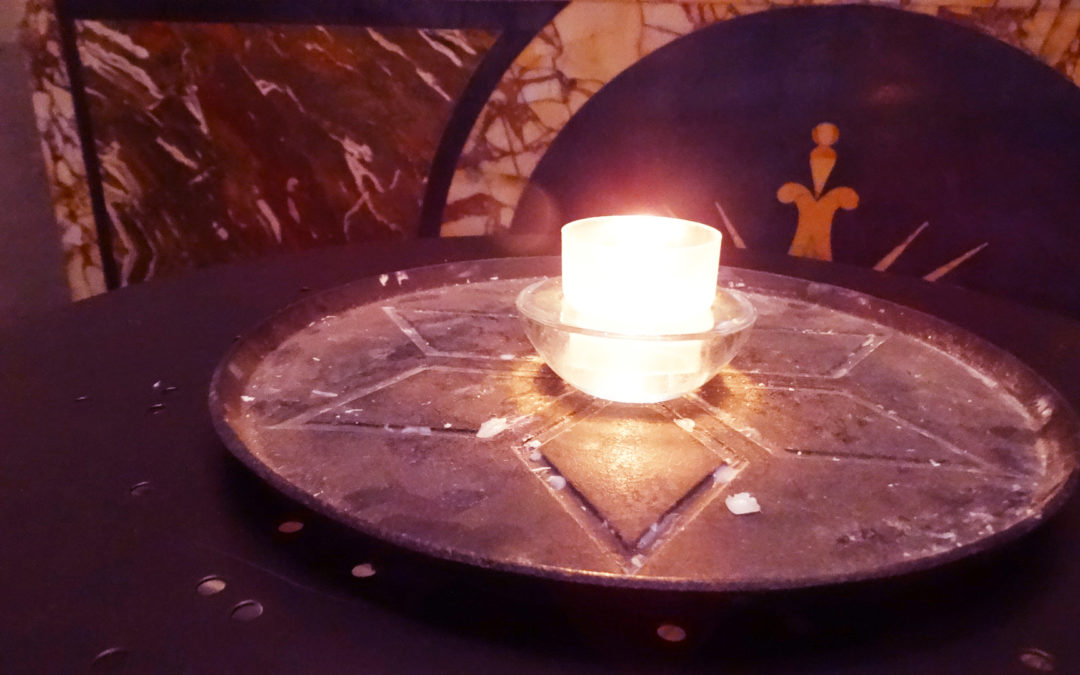By Brother Matt Schaefer, C.PP.S.
When I was born, both my mother and I were sick. I was sick enough that I was rushed to Children’s Hospital in Columbus by two nuns in a taxi. Fearing that I would die, one of the nuns baptized me on the way. Despite my parents’ worries for my health, I think the baptism gave them some comfort. Many years later, I was in a hospital chaplain program in Chicago. Twice during my time at Christ Hospital, I baptized a newborn baby who was dying. The first time was during my very first shift. I had not expected to do this and was quite unprepared when a nurse told me I had to do it and handed me water, a plastic shell, and a white baptism garment. I took a deep breath, tried to calm myself, and asked God to keep me from saying anything wrong (this was my most common prayer during my time at the hospital). The Holy Spirit allowed me to remember Jesus’ instruction on how to baptize and I think everything went as well as could be expected. I know that the nurses were happy and perhaps the parents found some measure of comfort in this at a later time.
Usually baptisms are much more joyous occasions. Parents dedicate their infant child to God and start him or her on the journey of Christian life. I’m sure it is more meaningful for adults who are baptized, especially after the long preparation of an RCIA program.
In today’s reading from the beginning of the Gospel of Mark, we see a different type of baptism. It’s easy to read about John the Baptist and Jesus through the lens of our own experiences of a happy baptism of an adorable baby in our parish church. But the scene in the gospel is very different. John is in the desert; he is apparently living apart from society. Mark describes John’s manner of dress and food he eats. We can assume these are described to show John’s otherness. He must have been a strange sight.
John is proclaiming a baptism of repentance. The story of God’s covenant with the people of Israel is filled with repeated failures and rededications to following God’s word. Submitting to John’s baptism is significant; but John invokes someone who will follow him and who will offer an even greater baptism. When John states that he is not worthy to loosen the thongs of Jesus’ sandals, he is expressing submission to Jesus. The implication is that baptism is more than a rededication to God—it is a complete submission to Jesus. John demands a metanoia—a radical change of heart and behavior.
The sacrament of baptism washes away sin and provides the grace to live a faithful life as a follower of Jesus. In today’s Gospel, the change that John is asking for comes before baptism. The act of submitting to the baptisms by John and Jesus requires the intention of a radical change in one’s life. What did John’s followers expect their new lives to be like? Would they have to live in the desert like John? Would they have to leave their families and normal society? It is an amazing commitment that these people made—when the one mightier than John who was coming was a complete unknown.
Most of us did not make that commitment ourselves before we were baptized. And we can’t get baptized again to renew or restart our commitment to following Jesus. But we can recommit ourselves to our baptismal promises every time we attend Mass. We can even begin each day by offering ourselves in submission to the will of God—how radical would that be!
To view the full scripture reading, click here.
![]()

Brother Matthew Schaefer, C.PP.S., is in ministry at the Downtown Dayton parishes, which include Emmanuel, Holy Trinity and St. Joseph.

